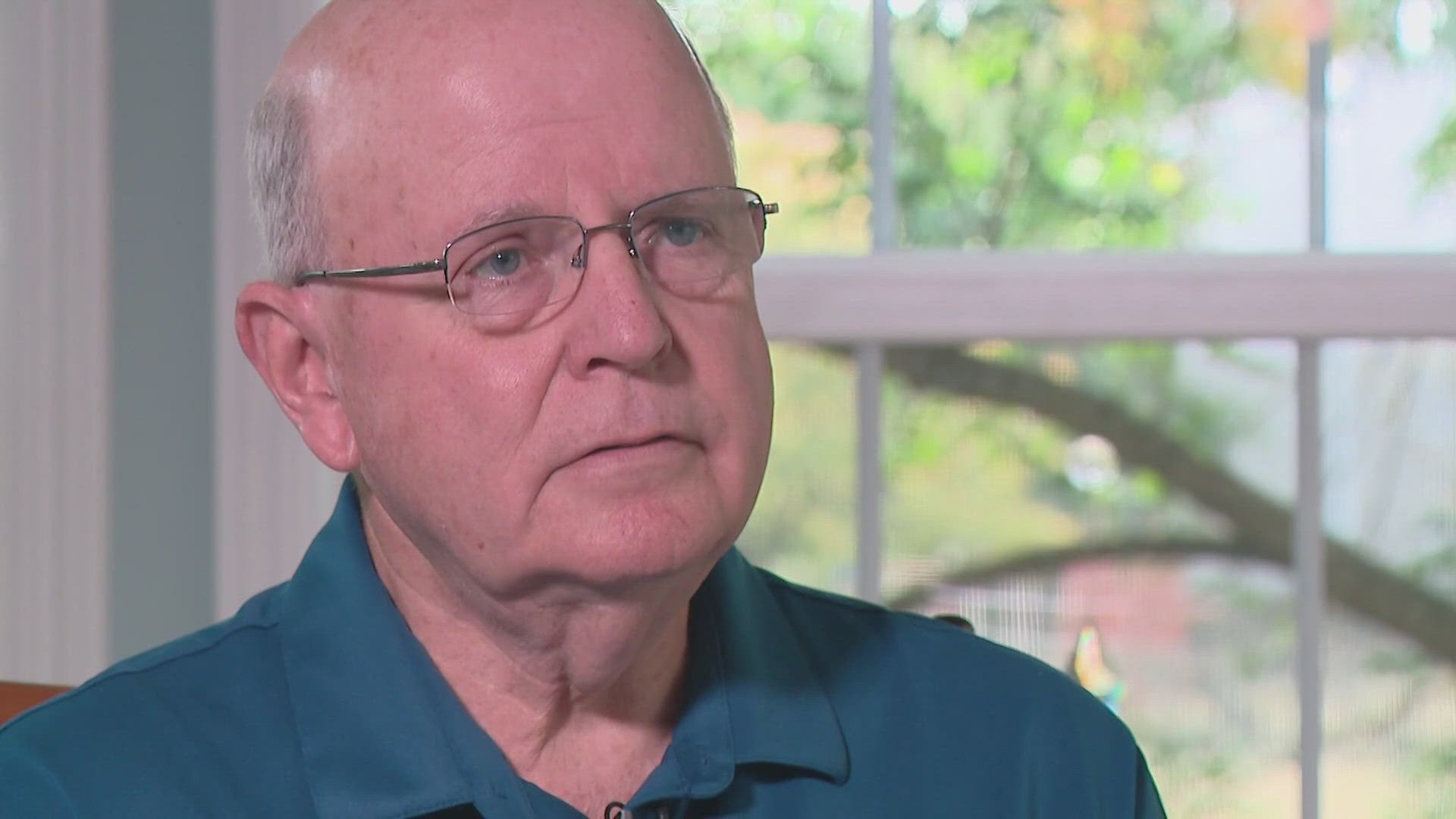COLUMBUS, Ohio — Former Columbus Division of Police Lt. Fred Bowditch spent his career keeping citizens safe from danger.
“I worked organized crime for 10 years,” he said.
But when he went for a routine eye exam his doctor found danger in his right eye.
“He looked at my right eye and went, 'Whoa!”
Bowditch's eyesight was fading. His meeting with a specialist was an eye-opener. That’s when his doctor said, “I’m pretty sure you’ve got cornea dystrophy. I’m going to have to replace your cornea."
It was something Bowditch was not prepared to hear.
"I thought, 'My God, how common is this?' I've never heard of it," Bowditch said. "I go, 'What do you mean replace my cornea?' He goes technically it's a transplant.”
Bowditch's doctor told him the surgery would require the selfless act of a stranger.
“We have to wait for someone to die to donate their cornea and thankfully somebody did that,” he said.
Last year in the U.S., more than 50,000 people donated their corneas so others could see again, according to Eye Bank Association of America.
In Columbus, more than 1,200 have provided sight-saving surgery, according to Central Ohio Lions Eye Bank.
Gay men, however, are still not allowed to donate corneas even though they contain no blood, just tissue and nerve endings.
Since 1994, the U.S. Food and Drug Administration and Eye Bank Association of America have banned the transplantation of corneas from men who have had sex with a man in the last five years, according to the American Academy of Ophthalmology.
The policy was in response to a time when HIV testing could not detect the virus until several months after infection. But today, tests can reliably detect the virus within the first one to two weeks of infection.
Ophthalmologist Michael Puente of the University of Colorado has studied the topic and found there are no known cases of HIV being transmitted through a cornea, even in the 1980s and 90s when at least 10 people unknowingly received transplants from positive donors.
"The cornea is an unlikely pathway for the virus because it is the only part of a human body that has no blood supply; it gets oxygen directly through the air," AOO reported.
As a result of his research, he and others have formed Legalize Gay Eyes to try and shorten the time in which gay men can donate.
Dr. Carrie Lembach is the medical director of the Central Ohio Lions Eye Bank. She agrees that the five-year restriction should be shortened.
“That restriction hold has been out for decades longer than it should be,” she said.
Dr. Lembach says it’s important for people to have a discussion with their doctor about eye donation along with organ donation because there are misconceptions.
“Even if you have astigmatism or cataract surgery, you can donate. People always tells me they don’t want my eyes, absolutely they should become a donor if you meet the criteria you can save someone's sight,” she says.
Bowditch says his cornea transplant was life-changing.
“Thank God for the donor. I can't stress that enough,” he said.
You can learn about eye donation here.

